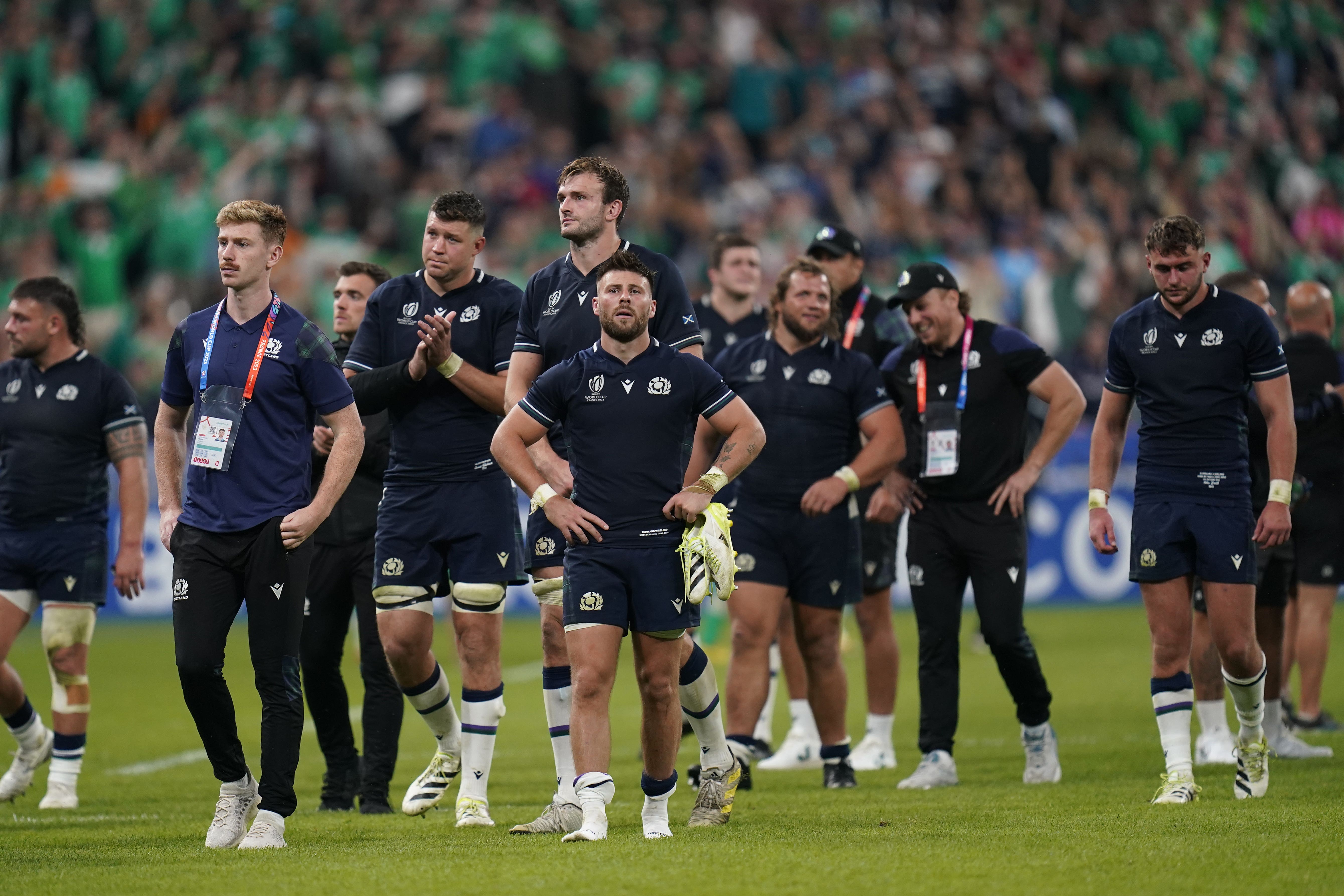How ‘the best ever Scotland team to take the field’ fared at the Rugby World Cup
Scotland were unable to progress through a formidable group.

Your support helps us to tell the story
From reproductive rights to climate change to Big Tech, The Independent is on the ground when the story is developing. Whether it's investigating the financials of Elon Musk's pro-Trump PAC or producing our latest documentary, 'The A Word', which shines a light on the American women fighting for reproductive rights, we know how important it is to parse out the facts from the messaging.
At such a critical moment in US history, we need reporters on the ground. Your donation allows us to keep sending journalists to speak to both sides of the story.
The Independent is trusted by Americans across the entire political spectrum. And unlike many other quality news outlets, we choose not to lock Americans out of our reporting and analysis with paywalls. We believe quality journalism should be available to everyone, paid for by those who can afford it.
Your support makes all the difference.Scotland suffered a group-stage exit at the Rugby World Cup after falling victim to a formidable pool featuring the two teams that began the tournament as the highest-ranked in the world.
It represented a disappointing outcome for a side that arrived in France ranked fifth in the world and billed as “without doubt the best ever Scotland team to take the field” by highly-regarded former international John Jeffrey.
Here, the PA news agency looks back on a campaign in which Gregor Townsend’s side were unable to reach the heights of which they believed they were capable.
Results
In terms of results, Scotland lost the two games they were expected to lose and won the two they were expected to win.
In their first match in Marseille they failed to lay a glove on world champions South Africa, losing 18-3 and posting their lowest score since the first game of the previous World Cup.
They bounced back strongly with bonus-point wins over Tonga (45-17) and Romania (84-0) to keep their slender qualification hopes alive going into the last game against Ireland.
Needing to win with a bonus point or by denying the world’s top-ranked side a losing bonus in Paris, Scotland endured a chastening evening as the Irish raced into a 36-0 lead.
Two tries in quick succession once the game was beyond them made the scoreline a more respectable 36-14, but the Scots’ inability to trouble either South Africa or Ireland meant they were on the plane home at the end of the pool stage for a second World Cup running.
While there was no disgrace in being eliminated from such a strong pool, Scotland felt they had failed to perform to their potential in the two key matches.
Selection
There were few surprises in the squad head coach Townsend named for the tournament, although the retirement of record try-scorer Stuart Hogg in June – after he had been named in the 41-man provisional group – threw something of a spanner in the works.
Stuart McInally was the most notable omission from the final 33-man squad named in August although the veteran hooker would later be called in after Dave Cherry withdrew due to injury following the first game.
Townsend selected a familiar-looking side for South Africa and Ireland, with the only change to the XV between those two key matches the introduction of scrum-half Ali Price in place of Ben White.
The team remained relatively strong against Tonga, with only four changes from the Boks game, and the second stringers were given a run-out against Romania, meaning every player in the squad saw game-time except McInally, who withdrew himself through injury just over a week after being called in.
Star performers
In a tournament where they misfired collectively in the two games that really mattered, few Scotland players returned home from France with their reputations enhanced.
Darcy Graham could at least take consolation from bagging five tries – one against Tonga and four against Romania – to climb to second on the national team’s all-time try-scoring list, although he would have traded those scores for a more notable impact against one of the two heavyweights.
Price – who scored tries against Romania and Ireland – would also be entitled to see the tournament as a nominal success on an individual level since he managed to regain the number nine jersey from White after losing it for the entirety of the Six Nations and the opening two games of the World Cup.
Future
After arriving at the tournament amid a blaze of optimism, a sense of autumnal gloom has descended around the national team in the wake of their early exit.
The Scots – for whom Townsend remains contracted until 2026 – still have a good squad at their disposal, but 10 of the 33-man squad for France were in their 30s, while all of their much-vaunted first-choice back-line will be in their 30s by the time of the next World Cup in Australia.
The most pressing concern for Scotland in the post-tournament analysis is the perceived lack of talent emerging to take over from those nearing the end of their Test careers.
Ollie Smith, Rory Darge and Ewan Ashman were the three youngsters in the squad at 23, but there are very few options currently knocking on the door from the next age bracket down.